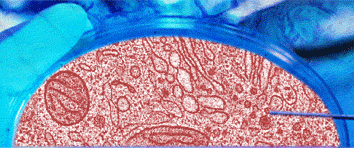 |
 |
 |
Cancer VaccinesTypesCan you imagine how long the average life expectancy would be if cancer were ever eradicated the way polio and smallpox have been? It's amazing to think about what doctors might be able to achieve in our lifetime. Scientists have made significant inroads in the last few decades and are now testing several vaccines that could possibly lead to the complete prevention of cancer. Probably the most promising form of cancer treatment is in immunotherapy, where scientists are developing experimental cancer vaccines that could lead to the eradication of cancer this century. There are two major categories that cancer vaccines fit into:
As the name suggests, specific cancer vaccines are designed to treat specific types of cancers. In other words, a vaccine could be developed for lung cancer, another vaccine could be used to treat colon cancer, and yet another vaccine could treat skin cancer, and so on. A more appealing cancer vaccine would be one that could fight cancer cells regardless of cancer type. This type of vaccine is called a universal cancer vaccine. In these two categories, there are more specific types of cancer vaccines. Each type of cancer vaccine works on the same basic idea: The vaccine, which contains tumor cells or antigens, stimulates the patient's immune system, which produces special cells that kill cancer cells and prevent relapses of the cancer. Unlike vaccines for other disease that prevent the occurrence of the disease, there isn't a vaccine in development that can prevent the onset of cancer. Cancer vaccines are used only as a treatment after the cancer has been found in a patient. The most promising vaccine for cancer treatment is dendritic cell vaccine. Dendritic cells break the antigens on the cancer cell surfaces into smaller pieces. The dendritic cells then act as most-wanted posters for the immune system, displaying those antigen pieces to the killer T cells. To make a dendritic cell vaccine, scientists extract some of the patient's dendritic cells and use immune cell stimulants to reproduce large amounts of dendritic cells in the lab. These dendritic cells are then exposed to antigens from the patient's cancer cells. This combination of dendritic cells and antigens is then injected into the patient, and the dendritic cells work to program the T cells. |
|
Home | Immune System | Dendritic Cells | Therapy | Cancer Vaccines | Dendritic Cells Preparation | Method of Treatment | DC Maturation Process | Contact
Copyright © FCTI 2024 All rights reserved. |



